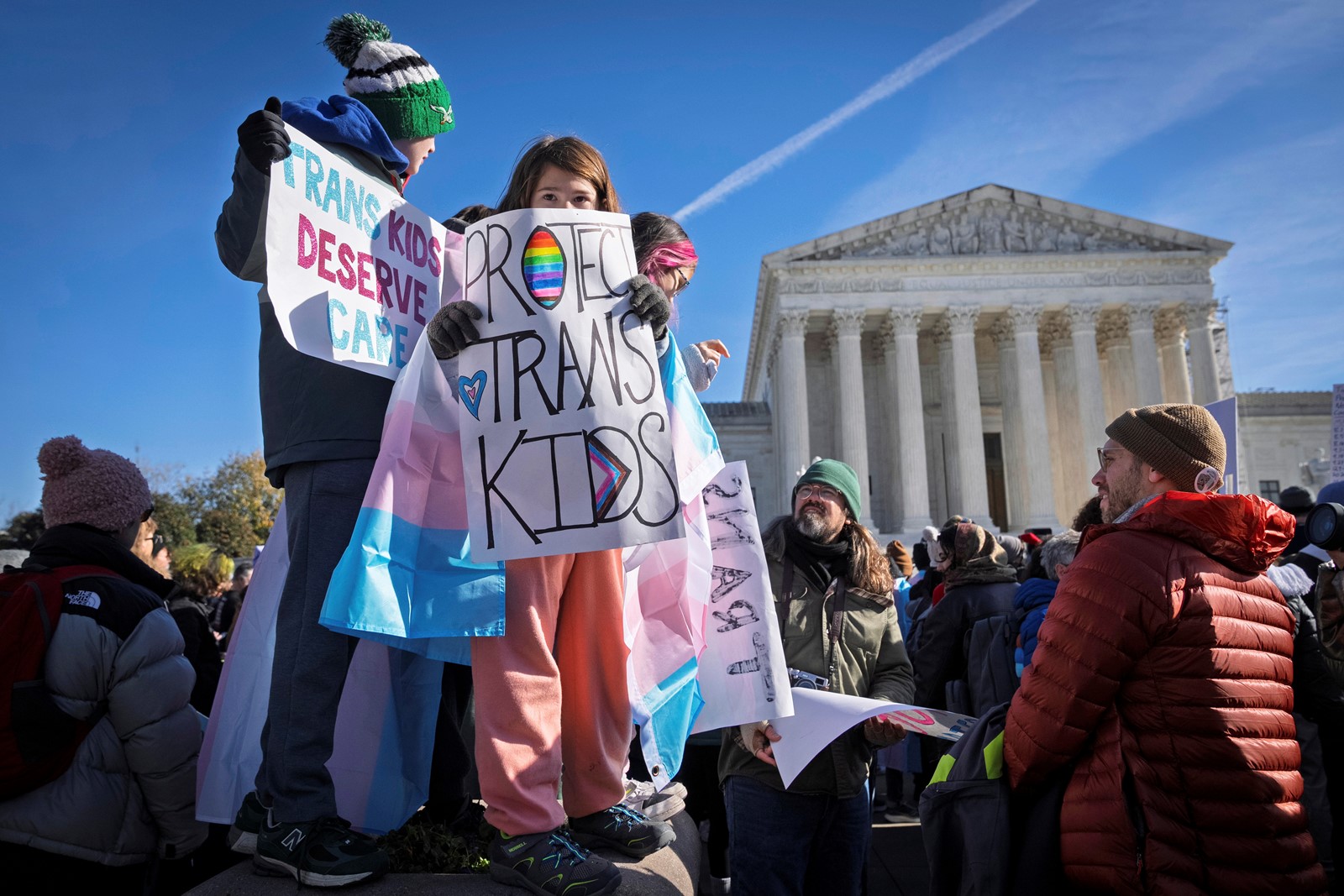
President Donald Trump’s administration released a lengthy review of transgender health care on Thursday that advocates for a greater reliance on behavioral therapy rather than broad gender-affirming medical care for youths with gender dysphoria.
The 409-page Health and Human Services report questions standards for the treatment of transgender youth issued by the World Professional Association for Transgender Health and is likely to be used to bolster the government’s abrupt shift in how to care for a subset of the population that has become a political lightning rod.
Major medical groups and those who treat transgender young people sharply criticized the new report as inaccurate.
This “best practices” report is in response to an executive order Trump issued days into his second term that says the federal government must not support gender transitions for anyone under age 19.
“Our duty is to protect our nation’s children — not expose them to unproven and irreversible medical interventions,” National Institutes of Health Director Dr. Jay Bhattacharya said in a statement. “We must follow the gold standard of science, not activist agendas.”
The report questions the ethics of medical interventions for transgender young people, suggesting that adolescents are too young to give consent to life-changing treatments that could result in future infertility. It also cites and echoes a report in England that reinforced a decision by its public health services to stop prescribing puberty blockers outside of research settings.
The report accuses transgender care specialists of disregarding psychotherapy that might challenge preconceptions, partly because of a “mischaracterization of such approaches as ‘conversion therapy,’” a discredited practice that seeks to change patients’ sexual orientation or gender identification. About half the states have banned for conversion therapy for minors.
The American Academy of Child & Adolescent Psychiatry has said evidence shows conversion therapies inflict harm on young people, including elevated rates of suicidal thoughts.
HHS said its report does not address treatment for adults, is not clinical guidance and does not make any policy recommendations. However, it also says the review “is intended for policymakers, clinicians, therapists, medical organizations, and importantly, patients and their families,” and it declares that medical professionals involved in transgender care have failed their young patients.
The report could create fear for families seeking care and for medical providers, said Shannon Minter, the legal director at the National Center for Lesbian Rights. “It’s very chilling to see the federal government injecting politics and ideology into medical science,” Minter said.
“It’s Orwellian. It is designed to confuse and disorient,” Minter added.
Child and adolescent psychiatrist Dr. Scott Leibowitz, a co-author of the influential WPATH standards for youth, said the new report “legitimizes the harmful idea that providers should approach young people with the notion that alignment between sex and gender is preferred, instead of approaching the treatment frame in a neutral manner.”
While Health Secretary Robert F. Kennedy Jr. has repeatedly pledged to practice “radical transparency,” his department did not release any information about who authored the document. The administration says the new report will go through a peer-review process and will only say who contributed to the report after “in order to help maintain the integrity of this process.”
The report contradicts American Medical Association guidance, which urges states not to ban gender-affirming care for minors, saying that “empirical evidence has demonstrated that trans and non-binary gender identities are normal variations of human identity and expression.”
It also was prepared without input from the American Academy of Pediatrics, according to its president, Dr. Susan Kressly.
“This report misrepresents the current medical consensus and fails to reflect the realities of pediatric care,” Kressly said. She said the AAP was not consulted “yet our policy and intentions behind our recommendations were cited throughout in inaccurate and misleading ways.”
Dr. Jack Drescher, a New York psychiatrist and psychoanalyst who works on sexual orientation and gender identity issues, said the report is one-sided and “magnifies the risks of treatments while minimizing benefits.”
The Trump administration’s report says “many” U.S. adolescents who are transgender or are questioning their gender identity have received surgeries or medications.
In fact, such treatments remain rare as a portion of the population. Fewer than 1 in 1,000 adolescents in the U.S. received gender-affirming medication — puberty blockers or hormones — according to a five-year study of those on commercial insurance released this year. About 1,200 patients underwent gender-affirming surgeries in one recent year, according to another study.
Gender-affirming care for transgender youth under standards widely used in the U.S. includes developing a plan with medical experts and family members that includes supportive talk therapy and can — but does not always — involve puberty blockers or hormone treatment. Many U.S. adolescents with gender dysphoria may decide not to proceed with medications or surgeries.


 PREVIOUS ARTICLE
PREVIOUS ARTICLE
